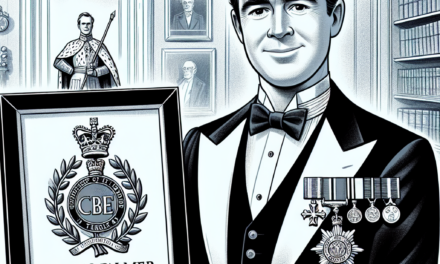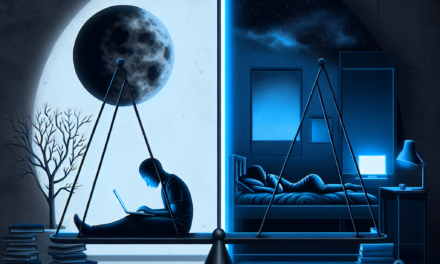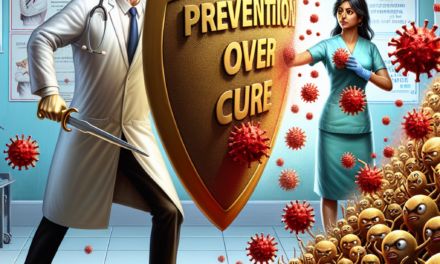The True Impact of Alcohol on Bipolar Disorder Symptoms
Bipolar disorder is a complex mental health condition characterized by extreme mood swings, including emotional highs (mania or hypomania) and lows (depression). Managing bipolar disorder can be challenging, and various factors can influence the severity and frequency of symptoms. One such factor is alcohol consumption. This article delves into the intricate relationship between alcohol and bipolar disorder, exploring how alcohol affects symptoms, treatment, and overall quality of life for those living with this condition.
Understanding Bipolar Disorder
Before examining the impact of alcohol on bipolar disorder, it is essential to understand the disorder itself. Bipolar disorder affects approximately 2.8% of the U.S. adult population, according to the National Institute of Mental Health. It is a lifelong condition that requires ongoing management and treatment.
Types of Bipolar Disorder
Bipolar disorder is categorized into several types, each with distinct characteristics:
- Bipolar I Disorder: Characterized by manic episodes lasting at least seven days or by manic symptoms that are so severe that immediate hospital care is needed. Depressive episodes also occur, typically lasting at least two weeks.
- Bipolar II Disorder: Defined by a pattern of depressive episodes and hypomanic episodes, but not the full-blown manic episodes that are typical of Bipolar I Disorder.
- Cyclothymic Disorder: Numerous periods of hypomanic symptoms as well as periods of depressive symptoms lasting for at least two years (one year in children and adolescents), but the symptoms do not meet the diagnostic requirements for a hypomanic episode and a depressive episode.
- Other Specified and Unspecified Bipolar and Related Disorders: Symptoms of bipolar disorder that do not match the three categories listed above.
Understanding these types is crucial for recognizing how alcohol might differently impact individuals with varying forms of bipolar disorder.
Symptoms and Challenges
The symptoms of bipolar disorder can vary widely among individuals and can include:
- Manic or hypomanic episodes characterized by increased energy, euphoria, irritability, and decreased need for sleep.
- Depressive episodes marked by feelings of sadness, hopelessness, fatigue, and loss of interest in activities.
- Mixed episodes, where symptoms of mania and depression occur simultaneously.
These symptoms can lead to significant challenges in daily life, affecting relationships, work, and overall well-being. The unpredictable nature of mood swings makes it difficult for individuals to maintain stability, and this is where the role of alcohol becomes particularly concerning.
The Role of Alcohol in Bipolar Disorder
Alcohol is a central nervous system depressant that can have profound effects on mood and behavior. For individuals with bipolar disorder, alcohol consumption can exacerbate symptoms and complicate treatment efforts.
Alcohol as a Mood Altering Substance
Alcohol is known to alter mood and behavior, which can be particularly problematic for individuals with bipolar disorder. The effects of alcohol on mood can vary depending on the amount consumed and the individual’s unique response to alcohol.
- Short-term Effects: Initially, alcohol may produce feelings of relaxation and euphoria, which can be appealing to individuals experiencing depressive symptoms. However, these effects are temporary and can quickly lead to increased irritability and mood swings.
- Long-term Effects: Chronic alcohol use can lead to persistent mood disturbances, increased anxiety, and a higher risk of developing alcohol use disorder, which can further complicate the management of bipolar disorder.
Research has shown that individuals with bipolar disorder are at a higher risk of developing alcohol use disorder compared to the general population. This comorbidity can lead to a vicious cycle where alcohol use exacerbates bipolar symptoms, leading to increased alcohol consumption as a form of self-medication.
Impact on Manic and Depressive Episodes
Alcohol can have different effects on manic and depressive episodes, often worsening the severity and duration of these episodes.
- Manic Episodes: During manic episodes, individuals may engage in risky behaviors, including excessive alcohol consumption. Alcohol can further impair judgment and increase impulsivity, leading to dangerous situations and potential harm.
- Depressive Episodes: Alcohol is a depressant, and its consumption during depressive episodes can intensify feelings of sadness and hopelessness. It can also interfere with the effectiveness of antidepressant medications, making it more challenging to manage depressive symptoms.
The interplay between alcohol and bipolar disorder symptoms highlights the importance of understanding the potential risks associated with alcohol consumption for individuals with this condition.
Alcohol and Medication Interactions
For individuals with bipolar disorder, medication is often a critical component of treatment. However, alcohol can interact with these medications, leading to reduced efficacy and increased side effects.
Common Medications for Bipolar Disorder
Several medications are commonly prescribed to manage bipolar disorder, including:
- Mood Stabilizers: Lithium and valproate are often used to stabilize mood and prevent manic and depressive episodes.
- Antipsychotics: Medications such as olanzapine and quetiapine may be prescribed to manage manic episodes and provide mood stabilization.
- Antidepressants: These may be used cautiously to treat depressive episodes, often in combination with mood stabilizers to prevent triggering manic episodes.
Each of these medications can interact with alcohol in different ways, potentially leading to adverse effects.
Potential Interactions and Risks
Alcohol can interfere with the metabolism and effectiveness of bipolar disorder medications, leading to several potential risks:
- Reduced Efficacy: Alcohol can decrease the effectiveness of mood stabilizers and antipsychotics, making it more challenging to manage symptoms and maintain stability.
- Increased Side Effects: Combining alcohol with medications can increase the risk of side effects such as drowsiness, dizziness, and impaired coordination, which can be dangerous.
- Risk of Overdose: Alcohol can enhance the sedative effects of certain medications, increasing the risk of overdose and potentially life-threatening situations.
Given these risks, healthcare providers often advise individuals with bipolar disorder to avoid alcohol or consume it in moderation while closely monitoring its effects on their symptoms and medication regimen.
Case Studies and Real-Life Examples
To better understand the impact of alcohol on bipolar disorder, it is helpful to examine real-life examples and case studies that illustrate the challenges and consequences faced by individuals with this condition.
Case Study 1: The Vicious Cycle of Self-Medication
John, a 35-year-old man diagnosed with Bipolar I Disorder, struggled with managing his symptoms. During depressive episodes, he turned to alcohol as a form of self-medication, believing it would help alleviate his feelings of sadness and hopelessness. However, this led to a cycle where alcohol consumption exacerbated his depressive symptoms, leading to increased alcohol use.
Over time, John’s alcohol use disorder worsened, and he experienced more frequent and severe mood swings. His treatment team worked with him to address his alcohol use, incorporating therapy and support groups to help him develop healthier coping mechanisms. With time and effort, John was able to reduce his alcohol consumption and achieve greater stability in managing his bipolar disorder.
Case Study 2: The Impact on Relationships
Susan, a 28-year-old woman with Bipolar II Disorder, found that her alcohol use significantly impacted her relationships. During hypomanic episodes, she would engage in excessive drinking, leading to impulsive behaviors and conflicts with friends and family. Her loved ones expressed concern about her alcohol use, but Susan struggled to recognize the connection between her drinking and her bipolar symptoms.
Through therapy and education, Susan gained insight into how alcohol was affecting her relationships and her ability to manage her bipolar disorder. She worked with her therapist to develop strategies for reducing her alcohol consumption and improving her communication with loved ones. As a result, Susan experienced improved relationships and greater stability in her mood.
Strategies for Managing Alcohol Use in Bipolar Disorder
For individuals with bipolar disorder, managing alcohol use is a critical component of treatment and overall well-being. Several strategies can help individuals reduce or eliminate alcohol consumption and improve their ability to manage their symptoms.
Therapeutic Interventions
Therapy can play a vital role in helping individuals with bipolar disorder address their alcohol use. Cognitive-behavioral therapy (CBT) is particularly effective in helping individuals identify and change patterns of thinking and behavior related to alcohol use.
- Cognitive-Behavioral Therapy (CBT): CBT helps individuals recognize the triggers and thought patterns that lead to alcohol use and develop healthier coping strategies.
- Motivational Interviewing: This therapeutic approach helps individuals explore their motivations for change and build the confidence needed to reduce or eliminate alcohol use.
- Support Groups: Groups such as Alcoholics Anonymous (AA) provide a supportive community for individuals seeking to reduce or eliminate alcohol use.
These therapeutic interventions can be tailored to meet the unique needs of individuals with bipolar disorder, providing them with the tools and support needed to manage their alcohol use effectively.
Medication Management
In some cases, medication may be prescribed to help individuals with bipolar disorder reduce their alcohol consumption. Medications such as naltrexone and acamprosate can help reduce cravings and support abstinence from alcohol.
- Naltrexone: This medication helps reduce the pleasurable effects of alcohol, making it less appealing to individuals seeking to reduce their consumption.
- Acamprosate: Acamprosate helps reduce cravings for alcohol, supporting individuals in their efforts to maintain abstinence.
Medication management should be closely monitored by healthcare providers to ensure that it is effective and does not interfere with other medications used to manage bipolar disorder symptoms.
Conclusion
The relationship between alcohol and bipolar disorder is complex and multifaceted. Alcohol can exacerbate symptoms, interfere with treatment, and lead to significant challenges in managing the condition. Understanding the impact of alcohol on bipolar disorder is crucial for individuals living with this condition, as well as for their healthcare providers and support networks.
By exploring the effects of alcohol on mood, medication interactions, and real-life case studies, this article highlights the importance of addressing alcohol use in the context of bipolar disorder. Through therapeutic interventions, medication management, and support from loved ones, individuals with bipolar disorder can work towards reducing or eliminating alcohol use and achieving greater stability in their lives.
Ultimately, the true impact of alcohol on bipolar disorder symptoms underscores the need for comprehensive and individualized treatment approaches that consider the unique challenges and needs of each individual. By prioritizing mental health and well-being, individuals with bipolar disorder can lead fulfilling and stable lives.




